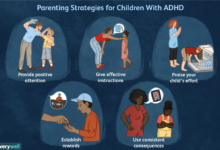The twinkling eyes, the spontaneous laughter, and the cherubic smiles of our little ones are the
purest joys of parenthood. But, like any good guardian, the welfare of our children is our top
priority, and ensuring their oral health is a cardinal part of that responsibility.
Early Childhood Caries, also known as baby bottle tooth decay or nursing caries, is an entirely
preventable yet prevalent childhood disease that, if left unchecked, can mar those enchanting
smiles and impact overall health. As parents or dentists, it is crucial to understand how we can
safeguard our children’s dental health from the first tooth’s emergence.
Understanding Early Childhood Caries (ECC)
Early Childhood Caries don’t just harm tiny teeth—they can also affect your child’s gums and
the bones that hold their teeth in place. ECC is more than a cavity; it’s a disease process that
may lead to severe pain, infections, and the disruption of eating patterns, growth, and weight
gain. ECC affects the teeth of infants and young children—affecting babies as soon as they
have teeth in their mouths.
ECC has multifactorial causes; frequent and prolonged exposure of a child’s teeth to liquids containing sugar, like milk (including breast milk), formula, and fruit juice can cause tooth decay. Cavity-causing germs can be passed from a mother, caregiver, or child to a child through common items like utensils, pacifiers, and toys.
Statistics show concerning trends, with ECC being one of the most common infectious diseases of childhood, and its prevalence is on the rise. It is not a small problem; it is a growing, and largely ignored, epidemic.
Preventive Measures for Parents
The role of parents is pivotal in the prevention of ECC. From establishing oral hygiene routines
to ensuring a nutritious diet, every step taken can significantly impact a child’s dental health.
Here’s what parents need to focus on:
Oral Hygiene Routines
The formation of a simple yet consistent oral hygiene routine sets the foundation for lifelong
dental care habits. Parents should begin cleaning their baby’s mouth during the first few days
after birth by wiping the gums with a clean, moist gauze pad or washcloth. Once teeth erupt,
parents should use a small, soft-bristled toothbrush and a pea-sized amount of fluoride-free toothpaste
Healthy Diet Habits
Limiting sugary and starchy snack intake can play a crucial role in the prevention of ECC.
Instead, encourage fresh fruits and vegetables, and ensure that your child’s diet includes
sufficient calcium and vitamin D for healthier teeth and gums.
Regular Dental Check-ups
The importance of early and regular dental visits cannot be overstated. The first visit should be
scheduled around the age of 1 year or within 6 months after the first tooth erupts. Regular
check-ups help detect early signs of ECC and provide an opportunity for parents to learn more
about their child’s oral health and the importance of preventive care.
Role of Dentists in Preventing ECC
Dentists are the frontline in the fight against ECC. They are equipped to identify the risk factors
and provide the necessary interventions. Here’s what dentists do to combat ECC:
Early Identification of Risk Factors
Through comprehensive exams, dentists can identify risk factors such as high levels of cariogenic bacteria, eating or drinking habits that expose teeth to sugar, feeding practices, and oral hygiene habits. Identifying these early can prevent the progression of ECC.
Treatments and Interventions
Professional fluoride treatments and sealants are effective preventive tools. Additionally, dentists can provide intervention strategies like silver diamine fluoride (SDF), a non-invasive treatment option for caries in pediatric patients.
Education and Guidance
Educating parents about proper oral hygiene practices, the impact of diet on dental health, and the importance of regular dental check-ups is key. Dentists can equip parents with the knowledge to make informed decisions and take proactive steps to ensure their child’s dental well-being.
Interactive Activities for Children
Making oral health fun through interactive activities can encourage children to take ownership of
their dental care. Here’s how to make it engaging:
Educational Activities
Games, puzzles, and children’s books can be educational tools in teaching the importance of oral health. Interactive learning kits can engage children in understanding the role of brushing and flossing in keeping their teeth and gums healthy.
Positive Reinforcement
Implement a rewards chart or a storybook character that celebrates good brushing habits.
Positive reinforcement can make a significant difference in developing positive dental care
habits from an early age.
Conclusion
Preventing Early Childhood Caries requires a concerted effort from all involved—parents,
dentists, and children. It is not just about avoiding cavities but establishing a solid foundation for
lifelong oral health. Early prevention is the key, and it begins with knowledge and action. With
the right education, resources, and commitment, we can ensure that our little ones carry their
bright smiles into a healthy future.




